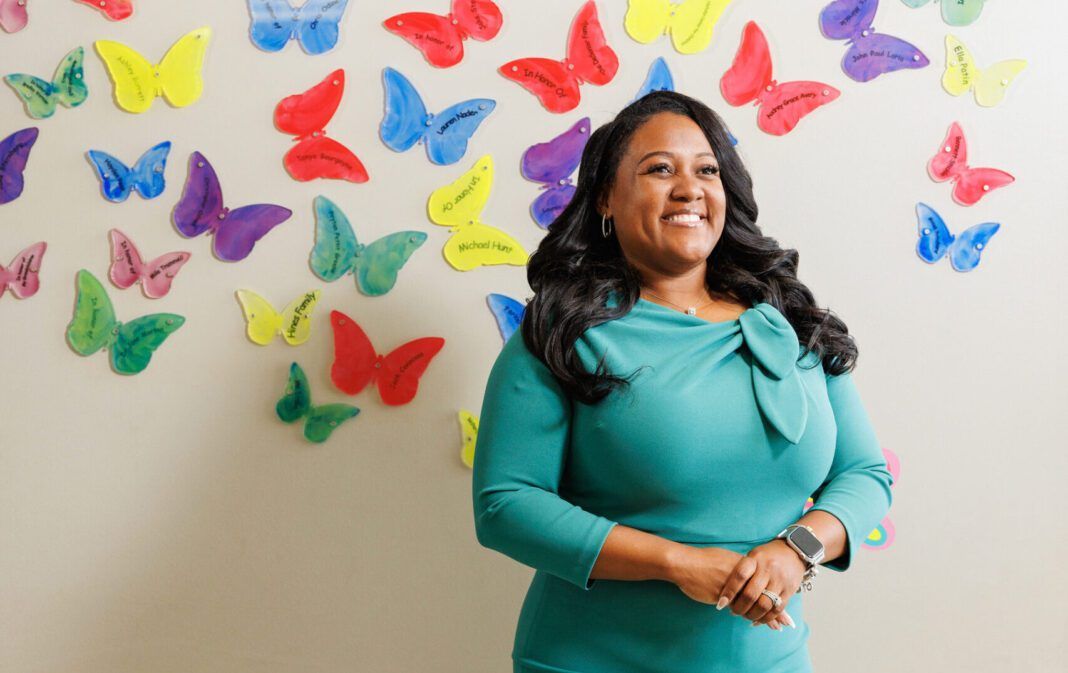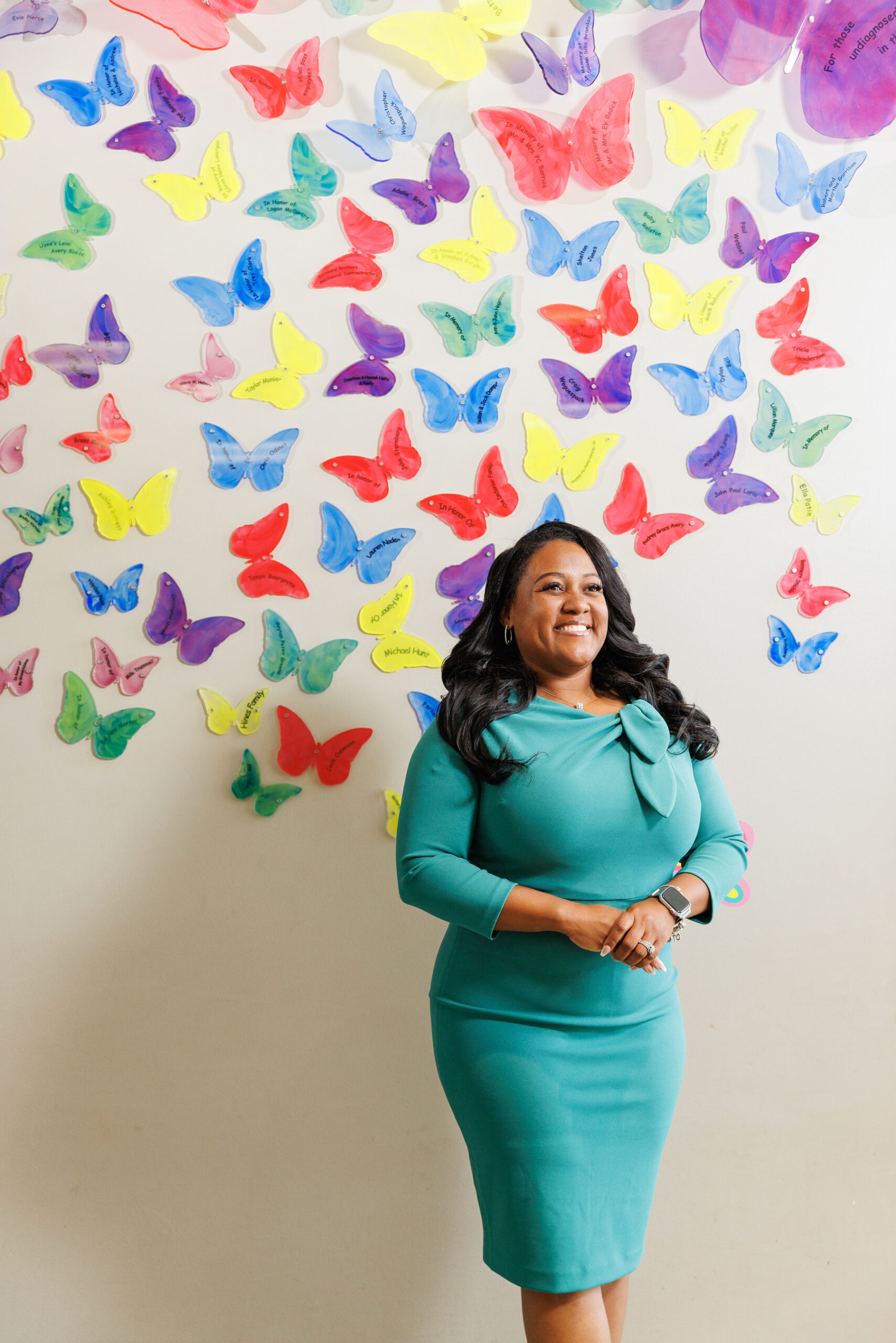Yalonda Short’s years as a teacher, mom and veteran have prepared her for her new role at the Emerge School
Yalonda Short took a page from her father’s book when she joined the military, which she says taught her about structure.
The Southern University grad later also took a page from her mother’s, who showed her the importance of making learning enjoyable as a seasoned educator.
Combining these qualities over 10 years as a teacher helped Short, a 42-year-old mom of three, win multiple awards and yield high student testing scores. She says it also taught her vital skills for her new role as principal of The Emerge School for Autism.
“I’m fun,” she says. “I’m fair, but I’m firm. And, it works.”
Short says she has always held her students to a high standard, and her new pupils at The Emerge School for Autism are no different.
Though she’s never taught in a school like Emerge, a tuition-free public charter for autistic children, Short has taught children on the autism spectrum. Her oldest son is also on the spectrum, so Short is familiar with the specific needs, quirks and triggers that are common among neurodivergent kids.
“I’ve been that parent, and I’ve been that teacher,” she says. “Now, I have the best of both worlds. … You have to have expectations really high. It has to be structured, full of love and full of fun, and the kids will grow.”
One way Short has focused on pumping more fun into Emerge’s curriculum has been through field trips. Last school year she organized a field trip to BREC’s Baton Rouge Zoo. Most students had never been on a school bus before, so Short had the bus come several days before the trip to help them become more familiar with the new mode of transportation.
“Once they got on, and they started doing the whip around the parking lot, they didn’t want to get off,” Short laughs.
Short says the trip was extremely successful, with some non-verbal children even exclaiming animal names during the visit. Next year, she hopes to coordinate a field trip every quarter to a destination that relates to lesson plans.
Another “bite-sized” change Short introduced was homework, allowing students to choose their assignments. She says it’s helped with parent involvement.
“Parents are the last key element,” she says. “The teachers, the child and the parents. That’s the trifecta. All of these things have to be working in the same direction for academic success and success overall.”
Still, this is just the beginning, according to Short, who keeps detailed calendars and whiteboards full of brain dumps on her office walls. She plans to stick around for a while and wants to bring a sense of normalcy into students’ lives.
“I’m just looking forward to the growth academically, behaviorally and socially,” Short says. “Just to make (the students) operate and not feel ostracized.”
This article was originally published in the July 2024 issue of 225 Magazine.













